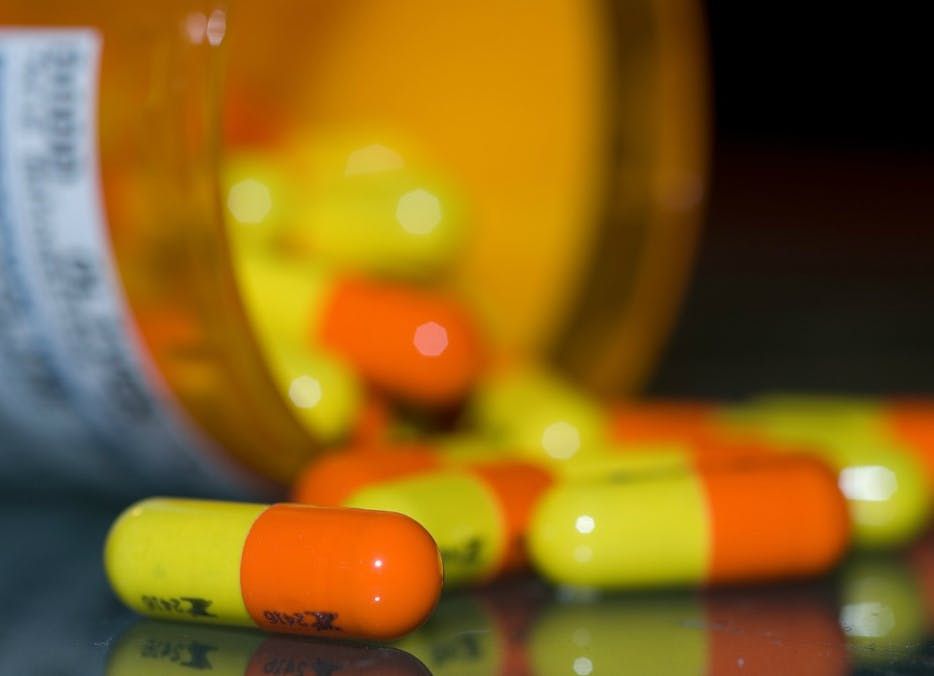Cannabis has an abundance of healing properties. So many, in fact, that some people are able to reduce their use of many prescription medications while consuming cannabis. But it’s important to keep in mind that cannabis can interact with more than 600 prescription drugs. Here’s a look at how—and why—cannabis can affect the way your body responds to some of today’s most commonly prescribed drugs.
FOLLOW US ON FACEBOOK & INSTAGRAM
Prescription Medications & Marijuana Can Activate the Same Neural Processes
Cannabis has two main pathways for interacting with other kinds of medications—the body’s system of natural endocannabinoid receptors, and the liver. In the liver, cannabis affects a specific family of liver enzymes responsible for metabolizing medications and other kinds of chemicals.
But cannabis’s effects on the endocannabinoid system (ECS) can explain why many people are able to cut back on their use of some prescription medications—or eliminate them altogether. This far-flung system consists of receptors found in many areas of the brain, organs and tissues. These receptors are activated by cannabinoids produced by the body itself and by the very similar ones contained in cannabis.
Many medications work by targeting specific neural pathways in the brain and other parts of the body. Cannabinoids work the same way. These cannabis compounds can bind to endocannabinoid receptors in the same areas, so that they trigger the same responses in the brain as the pharmaceuticals do.
RELATED: WHAT HAPPENS WHEN YOU MIX CANNABIS WITH PRESCRIPTION DRUGS?
But because both cannabinoids and certain prescription drugs activate the same or similar neural processes, this creates the potential for an additive effect when both are used together. In that way, cannabis can intensify the effects of the medication.
For example, benzodiazepine medications like Xanax and Klonopin are sedatives that work by modulating levels of GABA, a brain chemical that calms activity in the central nervous system. These medications can have effects including:
- Drowsiness
- Impaired motor skills
- Problems concentrating
But cannabis can also modulate GABA, which partly accounts for its calming and relaxing properties. Taken together, this combination can cause over-sedation and may intensify problems with coordination and speech.
Marijuana Influences the Way Medicines Are Metabolized
The liver is a hard-working organ responsible for metabolizing most medications and other chemicals. For these substances to become bioavailable, they need to be broken down by enzymes in the liver in a process called oxidation. This makes them more water soluble, so that they can enter the bloodstream and eventually be filtered out by the kidneys.
One set of liver enzymes, collectively called cytochrome P450 (CYP450), is mainly responsible for oxidizing medications. A variety of factors can affect this process. Cannabis is one of the factors that affect the ability of various members of the CP450 family to bio transform medications for use by the body.
Essentially, a complex set of interactions between specific CYP450 enzymes, the drugs that affect them, and what marijuana compounds they respond to, is responsible for the effects of cannabis on a given prescription drug.
These processes are also affected by other factors including:
- The way a person consumes cannabis
- How much cannabis someone uses
- What kind of marijuana a person consumes
- The patient’s overall health
Other medications can also play a role in how—or whether—cannabis will interact with a particular medication. This can make it difficult to find definitive answers about how marijuana interacts with common prescription drugs.
Relatively little research has been done on the whole question of cannabis-drug interactions, so the exact effects on many drugs are still unknown. But studies on the ECS and the ways medications become bioavailable in the body can provide some insight into how cannabis interacts with frequently prescribed medications.
Common Prescription Medications & How They Interact With Cannabis
CNS Depressants & Marijuana Could Produce Excessive Drowsiness
Central nervous system depressants (CNS depressants), work by slowing down activity in the central nervous system; this can reduce anxiety and promote relaxation. This class of drugs includes benzodiazepines like Xanax and Valium as well as sleep aids like Ambien and Lunesta. Cannabis can produce similar effects, so that when they’re taken together, marijuana and CNS depressants can produce excessive drowsiness and unresponsiveness, along with impaired thinking and coordination.
Cannabis Can Increase Opioids’ Effects
Opioids are a class of powerful pain medications that includes:
- oxycodone
- Vicodin
- morphine
- buprenorphine
Cannabinoids bind to many of the same receptor sites in the brain as opioids do, so that many people use cannabis as a way out of taking opioids. But cannabis can have an additive effect with opioids, so that it can increase effects including drowsiness, impaired coordination and cognition, as well as slurred speech.
SSRIs, SNRIs & Marijuana All Boost Serotonin Levels
Selective serotonin reuptake inhibitors, or SSRIs like Prozac and Celexa are frequently prescribed to treat depression, anxiety disorders and other mood-related problems. So are serotonin and noradrenaline reuptake inhibitors, or SNRIs, such as Effexor and Cymbalta. These drugs work by boosting levels of serotonin in the brain for a calming effect. Cannabis supports serotonin levels, too, so that in some users who also take SSRIs or SNRIs, it might cause serotonin levels in the brain to fluctuate or rise too high.
Beta Blockers With Marijuana Could Drop Blood Pressure Too Low
Many people take beta blocker drugs like Inderal or Lopressor for hypertension and other kinds of cardiovascular problems. These drugs lower blood pressure and heart rate, and so does cannabis. Marijuana can magnify those effects, causing irregular heartbeat and pushing blood pressure dangerously low.
Most drug-cannabis interactions cause relatively minor problems, but more than 100 currently prescribed pharmaceuticals can have potentially severe interactions with cannabis. If you’re consuming cannabis alongside your prescriptions, it’s wise to talk with your doctor about potential issues with taking these very different medications together.
Photo credit: oliver.dodd
If you’re new to cannabis and want to learn more, take a look at our Cannabis 101 post. HelloMD can help you get your medical marijuana recommendation; it’s easy, private and 100% online.






